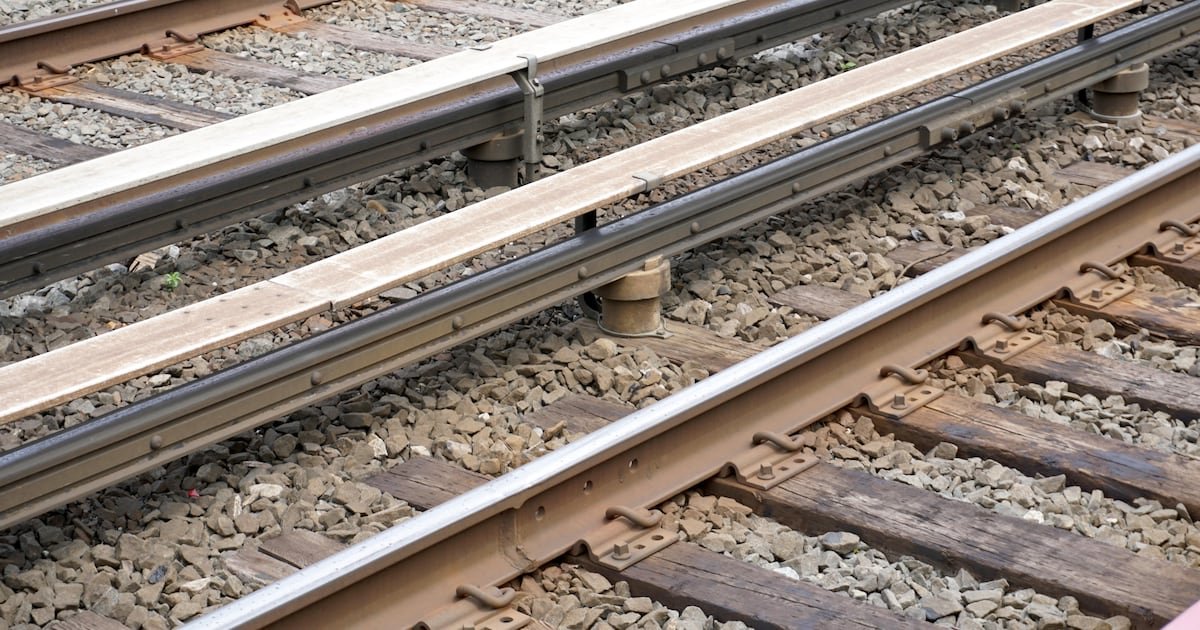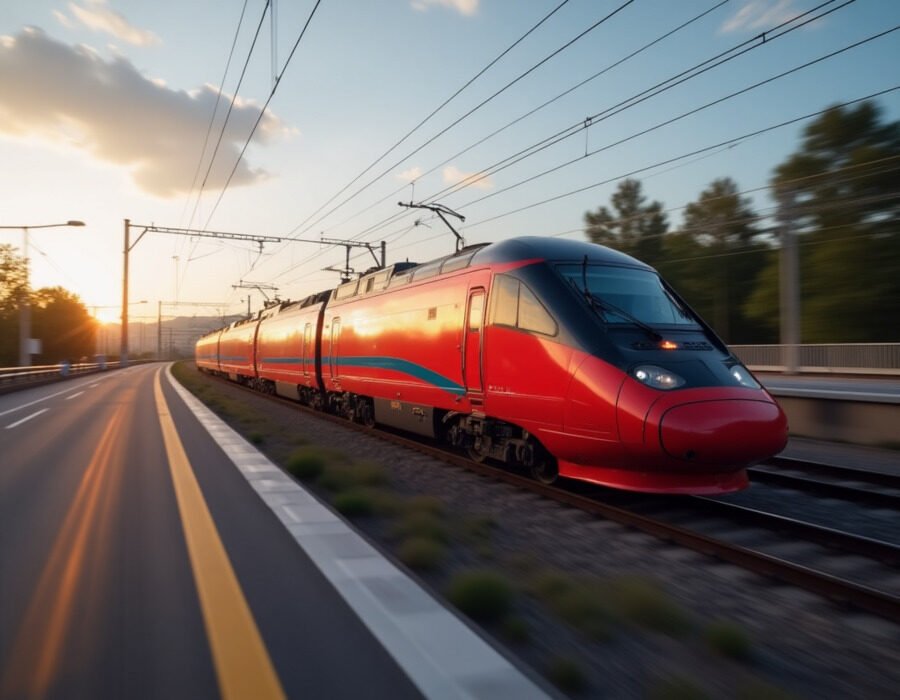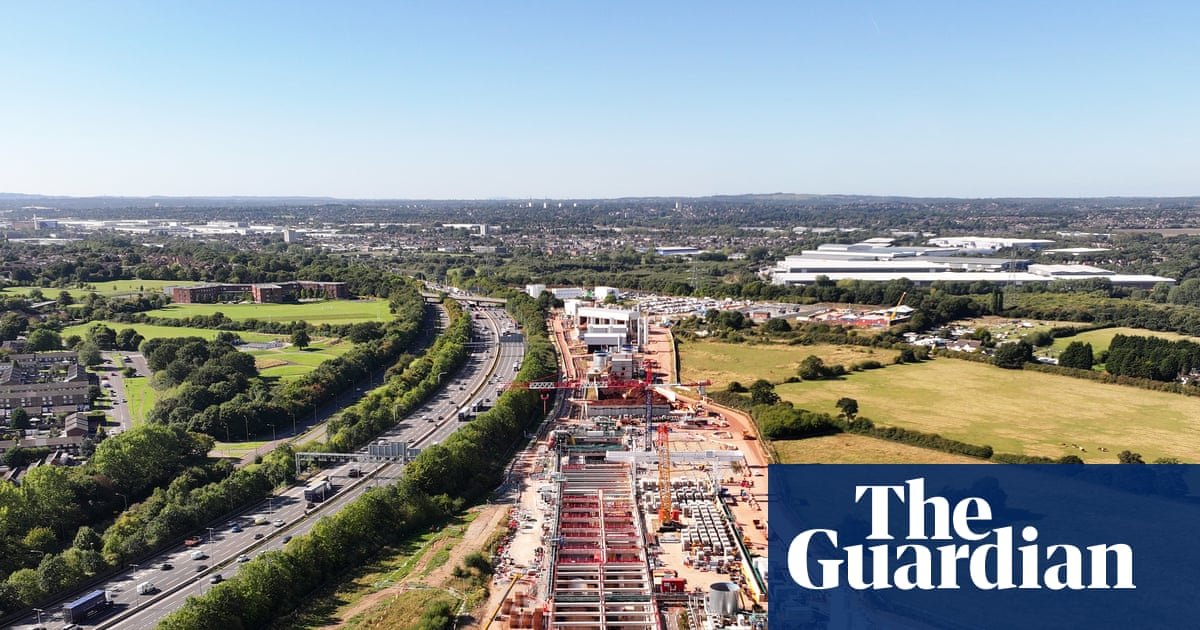Rail & Road
Irish Railwaymen Face Pay Cut Demands Amid Industry Upheaval

July 10 1925
REPRESENTATIVES of the managers of the Irish railways met the Executive of the National Union of Railwaymen yesterday afternoon in London.
The Irish representatives placed before the NUR Executive the proposals by the Irish railway managers for the reduction of wages of the railwaymen in Ireland.
The Executive of the NUR met later, and after a long private discussion it was officially announced that the proposals, details of which have already been published, were of such a drastic nature that they could not be entertained.
The railway managers’ proposals were based on the following findings of the Irish Railway Wages Board: –
“The representatives of the Railway Trades Unions found – Having heard the evidence in the matter of the application for a wage reduction in respect of certain trades, we are of opinion that the claim has not been established.
The representatives of the railway companies found as follows: – We, the representatives of the railway companies, are of opinion that the case for a reduction of 5s a week in the wages of the grades affected has been fully established, and claim that under all the circumstances explained to the Board the application is a reasonable one, and should be agreed to”.
Messrs Campbell and Duffy, representatives of the Users of Railways, found – That while the presentation of the companies’ claim for a reduction of wages, and the arguments adduces in support of it, have convinced us that readjustment of a drastic character in the finances is necessary if a 3½ per cent dividend on the ordinary stock is to be maintained, we cannot agree that further sacrifices can be borne by the workers concerned, having regard to the cuts already operating. We are further of the opinion that the recent financial experience of the railway industry, including the disappearance of the state aid to baronial lines, points conclusively to the necessity of the Governments and the people of the country reviewing the question of a national transit service.
Messrs Hewat and Fair, representing the Dublin and Belfast Chambers of Commerce, found – Having heard the case put forward on behalf of the railway companies for a reduction in the wages of various classes of employees, and the case in the opposition by the representatives of the men concerned, we have come to the conclusion: –
That it is necessary, if the railways are to continue to function and carry on efficiently, the companies must get relief from the present high working costs, or, alternatively, increase the charges.
The railway industry was in a state of flux in 1920s Ireland, with 26 railway lines amalgamated to form the Great Southern Railways and disputes over wages and costs as the industry struggled during economically constrained times.
Rail & Road
United Kingdom Rail Industry Enters New Chapter with Trenitalia’s Transition from c2c Operator to Visionary Partner in High-Speed and Sustainable Mobility Expansion

Monday, July 21, 2025
The United Kingdom has officially taken back control of the c2c rail franchise, marking a pivotal moment in the nation’s ongoing rail modernization strategy. As operations transition to public ownership under c2c Railway Limited, Trenitalia—part of Italy’s FS Group—concludes its direct management role while reaffirming its long-term commitment to the UK rail sector. Rather than signaling a withdrawal, this shift reflects a strategic evolution, with Trenitalia now focusing on high-impact infrastructure partnerships, technological innovation, and sustainable high-speed connectivity across Europe. The move aligns with the UK’s broader vision of building a smarter, greener, and more integrated transportation network that enhances mobility, boosts regional economies, and delivers long-term value to passengers and communities alike.
Trenitalia Celebrates Transformative c2c Chapter as UK Franchise Returns to Public Ownership
Effective Sunday, 20 July, the c2c rail franchise has officially come under public control, now operating as c2c Railway Limited under the oversight of the UK Department for Transport. This marks the conclusion of Trenitalia’s direct operational role in managing the route, but not its departure from the UK rail sector. Instead, the company sees this milestone as the beginning of a new strategic role in shaping the future of British rail.
Trenitalia, part of Italy’s FS Group with over 100 years of rail expertise, reflects proudly on its stewardship of c2c since acquiring the franchise in 2017. Over the past eight years, the company introduced pioneering technology, elevated customer service, and delivered a modern rail experience for millions of passengers. This transition signifies not a retreat, but a repositioning—from operator to long-term strategic partner—poised to support the UK’s evolving rail strategy under Great British Railways.
A Legacy of Innovation and Service Excellence
Trenitalia’s UK chapter with c2c has been marked by continuous investment in operational excellence and passenger-centric improvements. The operator has delivered more than 935,000 services and facilitated over 315 million passenger journeys, consistently earning accolades for punctuality and reliability. The most recent Transport Focus survey awarded c2c a 94.5% customer satisfaction score—higher than any other train company in the UK.
This performance was powered by a wide-ranging investment programme. A key milestone was the deployment of 10 newly built Alstom electric trainsets, marking a £100 million investment aimed at modernising and upgrading the fleet. c2c also became the UK’s first national rail route to adopt a fully contactless payment system, now processing over 10,000 daily taps. These technological enhancements, alongside upgrades to station facilities and streamlined ticketing through the digital PICO platform, have modernized the passenger journey from start to finish.
Strengthening the Regional Economy and Communities
Beyond performance metrics, Trenitalia’s impact has been felt throughout the East of England. c2c’s services are vital to more than 25,000 daily commuters into London, with regional rail travel contributing an estimated £590 million annually to local businesses. By reducing travel time, improving reliability, and enhancing customer experience, c2c has been a key driver of regional growth.
Fare compliance initiatives recovered nearly £600,000 from fare evasion in the last year, further reinforcing the system’s integrity and financial health. Additionally, the franchise achieved multiple safety and security certifications, including those from the White Ribbon campaign, Secure Stations Scheme, and national safeguarding programs—demonstrating a clear commitment to passenger and staff welfare.
Targeted government co-investments, such as the Station Improvement Fund and the Customer & Communities Investment Fund (CCIF), further empowered c2c to enhance the station environment and improve accessibility, making rail travel more inclusive and enjoyable for all.
A Continued Commitment to the UK Rail Future
Trenitalia underscores its ongoing commitment to the UK railway sector. Far from exiting, the company is expanding its focus on strategic partnerships and infrastructure development. Most recently, Trenitalia submitted an application to operate high-speed services between London and Paris, a move aligned with its broader mission to create a more sustainable and interconnected European rail network.
As a member of the FS Group, Trenitalia is leveraging its vast international experience to support the long-term vision of Great British Railways. This includes working closely with local authorities, universities, and innovation hubs to share knowledge and strengthen the UK’s mobility ecosystem.
Trenitalia’s repositioning reflects the dynamic nature of the rail sector and its own adaptability. While the mode of engagement may shift, the mission remains unchanged: to deliver efficient, safe, and future-ready rail services that benefit passengers, communities, and economies.
The United Kingdom has reclaimed the c2c rail franchise as Trenitalia transitions from operator to strategic partner, aiming to advance high-speed, sustainable mobility across Europe. This marks a bold step in the UK’s drive toward a smarter, greener rail future.
Looking Ahead with Pride and Purpose
As the c2c franchise returns to public hands, Trenitalia expresses heartfelt gratitude to its employees, customers, and partners who helped make its journey in the UK impactful and innovative. The company views this moment as a celebration of what has been accomplished and a springboard toward future contributions to Britain’s rail transformation.
With a track record defined by investment, resilience, and collaboration, Trenitalia remains a committed ally in the journey to build a smarter, greener, and more integrated transportation future across the UK and beyond.
Rail & Road
Resurrect HS2 northern leg to boost rail freight capacity, say UK manufacturers | Rail industry

Manufacturers will press ministers today to resurrect plans for a high-speed rail line reaching Leeds and Manchester as part of a large strategic investment to get lorries off Britain’s roads and cut emissions.
Business lobby group Make UK and Barclays Corporate Bank said research showed companies believe the move would significantly increase passenger numbers and free up capacity for rail freight on existing lines.
A survey of 200 manufacturers showed that nine in 10 believe the original high-speed rail line HS2 should still go ahead, while a similar number said there should be greater investment in faster connections between Liverpool, Manchester, Sheffield, Hull and Newcastle.
HS2 has suffered huge cost overruns and is being overhauled under new management. The transport minister, Heidi Alexander, said this year that problems with the line would delay its opening beyond 2033.
Many of Labour’s regional mayors support moves to extend the line to Manchester to boost economic growth across the north of England.
However, Keir Starmer, the prime minister, has indicated there is little cash available to extend HS2, even under “HS2-lite” plans that would have allowed for more capacity north of Birmingham.
Verity Davidge, the director of policy at Make UK, said: “It’s clear that the current levels of rail capacity aren’t suitable for the levels of freight traffic the government is predicting in the future.
“As a result, if industry is to make greater use of rail then we need the extra capacity which a high-speed link for passenger traffic would free up.
“This would provide a valuable opportunity to invest in multi-mode hubs which would improve connectivity between our major ports and better integrate road and rail routes through the spine of the country.”
after newsletter promotion
The survey found that road is overwhelmingly the main mode of transport for nine in 10 manufacturers, with six in 10 regarding road investment as critical for their just-in-time operations. This compares with just under half (46%) for investment in ports and just under four in 10 for rail.
Lee Collinson, the head of manufacturing, transport and logistics at Barclays UK Corporate Bank, said: “Upgrading and integrating our road, rail and port systems is crucial for boosting productivity, decarbonising transport and supporting long-term competitiveness.”
Rail & Road
Kazipet Railway Manufacturing Set to Begin Full-Scale Production by 2026, Boosting India’s Railway Industry and Regional Growth

Monday, July 21, 2025
Kazipet Railway Manufacturing is set to begin full-scale production by 2026, a move that will significantly boost both India’s railway industry and regional economic growth. The strategic ₹500 crore investment in the Telangana-based facility will enable the plant to manufacture state-of-the-art coaches, locomotives, and metro components using advanced technology. This initiative not only strengthens India’s infrastructure by expanding domestic railway production but also contributes to the region’s industrial development, creating thousands of jobs and supporting ancillary industries. By 2026, Kazipet Railway Manufacturing is expected to play a pivotal role in meeting the nation’s growing demand for modernized railway components, propelling India closer to its goal of self-reliance in rail technology.
Strategic Investment Fuels Technological Innovation
A ₹500 crore (≈ $60 million) investment will fund the installation of cutting-edge machinery at the Kazipet plant. This will include the adoption of robotic painting and automated storage systems, advancing the plant’s capacity to produce high-quality railway components. By integrating state-of-the-art technology, the facility will help meet the demand for modernized rolling stock, improving both operational efficiency and production capacity across India’s railway network.
The investment in modern machinery ensures that Kazipet Railway Manufacturing remains at the forefront of global industrial standards, allowing it to provide advanced solutions for the nation’s growing railway infrastructure needs. This move is set to position the plant as a major player in the development of India’s railway industry.
Boosting Regional Economy and Employment
The establishment of the Kazipet Railway Manufacturing facility is expected to significantly benefit the region’s economy. The plant is set to create thousands of jobs, not only within the manufacturing plant itself but also in the surrounding industries that will support its operations. This influx of employment opportunities will contribute to the region’s economic growth and play a pivotal role in Telangana’s industrial expansion.
Moreover, the Kazipet project is part of a larger ₹6,100 crore (≈ $735 million) infrastructure initiative announced in 2023. This initiative includes the development of 176 kilometers of highways and the establishment of the Kazipet railway unit, further boosting industrial activity in the region. By providing a strong industrial base and fostering economic growth, the plant is expected to attract additional investments to Telangana, making it a key hub for manufacturing and infrastructure in India.
Supporting India’s Vision for Self-Sufficiency in Railway Technology
Kazipet Railway Manufacturing aligns with India’s long-term goal of achieving self-reliance in railway technology. By reducing the country’s dependence on foreign imports for essential railway components, the plant supports the government’s “Atmanirbhar Bharat” (Self-Reliant India) initiative. This effort aims to strengthen domestic manufacturing capabilities and reduce the reliance on external suppliers, boosting the nation’s competitive edge in the global railway market.
The plant’s advanced production capacity will contribute to the modernization of India’s railways, helping to meet the rising demand for efficient, reliable, and sustainable transportation solutions. With production slated to begin in 2026, the Kazipet facility will play a crucial role in building a self-sufficient and resilient railway network that meets the needs of the nation’s growing economy.
Modernizing India’s Rail Infrastructure
The Kazipet Railway Manufacturing project forms a key component of India’s broader rail modernization strategy, which focuses on enhancing the country’s railway systems to keep pace with increasing demand for transportation. With advanced manufacturing capabilities, the Kazipet facility will help provide high-quality, domestically produced railway components, reducing costs and ensuring a steady supply of critical parts for the nation’s rail network.
The establishment of the plant represents a major step forward in improving operational efficiency within India’s railway system, aligning with national goals to modernize infrastructure and expand capacity. By supporting the production of advanced coaches, locomotives, and metro components, the plant will play a vital role in enhancing India’s rail network, ensuring it remains competitive in the face of growing global demand for railway services.
Kazipet Railway Manufacturing is set to transform India’s railway manufacturing landscape. With a significant investment in advanced technologies, the plant will play a central role in regional economic development, job creation, and the modernization of India’s rail infrastructure. As the plant prepares for full-scale production in 2026, it stands as a key contributor to India’s self-reliance in railway technology, industrial growth, and transportation efficiency. The Kazipet facility will not only help modernize India’s railway systems but also pave the way for a future-focused, self-sustaining transport infrastructure.
-

 Brand Stories8 hours ago
Brand Stories8 hours agoBloom Hotels: A Modern Vision of Hospitality Redefining Travel
-

 Brand Stories8 hours ago
Brand Stories8 hours agoHow Olive Group of Hotels Is Redefining Wellness Travel in India—And Why the World Is Watching
-

 Destinations & Things To Do1 day ago
Destinations & Things To Do1 day agoUntouched Destinations: Stunning Hidden Gems You Must Visit
-

 AI in Travel1 day ago
AI in Travel1 day agoAI Travel Revolution: Must-Have Guide to the Best Experience
-

 Brand Stories2 weeks ago
Brand Stories2 weeks agoVoice AI Startup ElevenLabs Plans to Add Hubs Around the World
-

 Brand Stories1 week ago
Brand Stories1 week agoHow Elon Musk’s rogue Grok chatbot became a cautionary AI tale
-

 Asia Travel Pulse2 weeks ago
Asia Travel Pulse2 weeks agoLooking For Adventure In Asia? Here Are 7 Epic Destinations You Need To Experience At Least Once – Zee News
-

 AI in Travel2 weeks ago
AI in Travel2 weeks ago‘Will AI take my job?’ A trip to a Beijing fortune-telling bar to see what lies ahead | China
-

 Brand Stories2 weeks ago
Brand Stories2 weeks agoChatGPT — the last of the great romantics
-

 The Travel Revolution of Our Era1 month ago
The Travel Revolution of Our Era1 month agoCheQin.ai Redefines Hotel Booking with Zero-Commission Model

You must be logged in to post a comment Login